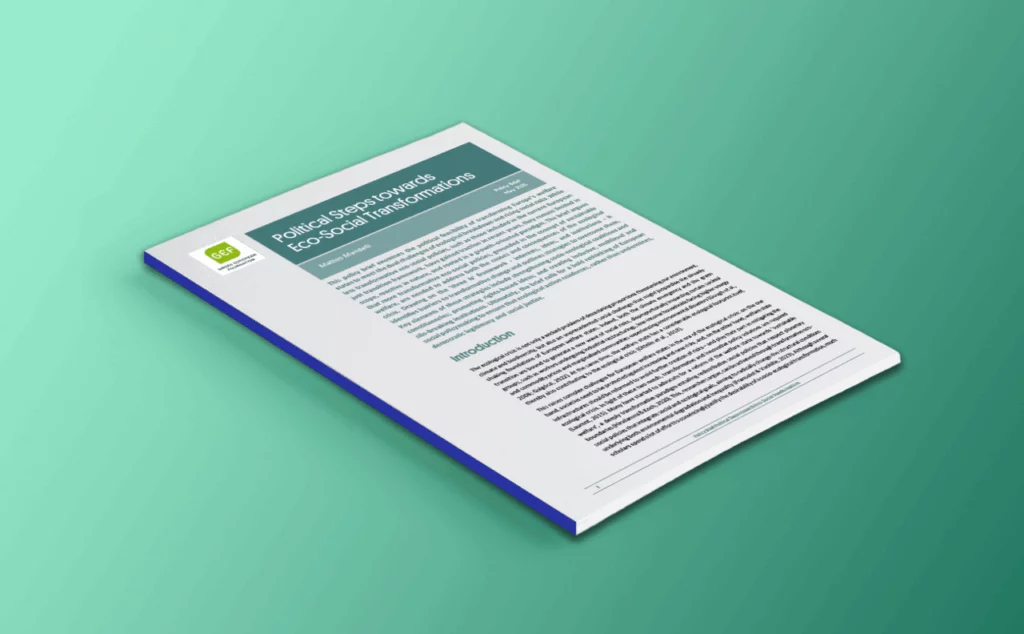About
This policy brief examines the political feasibility of transforming Europe’s welfare states to meet the dual challenges of ecological breakdown and rising social risks. While less transformative eco-social policies, such as those included in the current European just transition framework, have gained traction in recent years, they remain limited in scope, reactive in nature, and rooted in a growth-oriented paradigm. The brief argues that more transformative eco-social policies, grounded in the concept of sustainable welfare, are needed to address both the causes and consequences of the ecological crisis.
Drawing on the ‘three Is’ framework – interests, ideas, and institutions – the brief identifies barriers to transformative change and outlines strategies to overcome them. Key elements of these strategies include strengthening socio-ecological coalitions and constituencies; promoting rights-based ideas; and creating inclusive, multilevel and silo-breaking institutions. Ultimately, the brief calls for a bold rethinking of European social policymaking to ensure that ecological action reinforces, rather than undermines, democratic legitimacy and social justice.
Author
- Matteo Mandelli, is a postdoctoral research fellow at the Centre for European Studies and Comparative Politics, Sciences Po Paris. He currently collaborates with the Green European Foundation (GEF) and is a board member of the Sustainable Welfare and Eco-social Policy Network. He holds a PhD in political studies from the University of Milan.
Published by the Green European Foundation with the financial support of the European Parliament to the Green European Foundation. The European Parliament is not responsible for the content of this publication. The views expressed in this publication are solely those of the author and contributors and do not necessarily reflect the views of the European Parliament.
Format: 21x29.7 cm
Number of pages: 16
Publication date: 2025, June 3
Type: Policy Briefs


